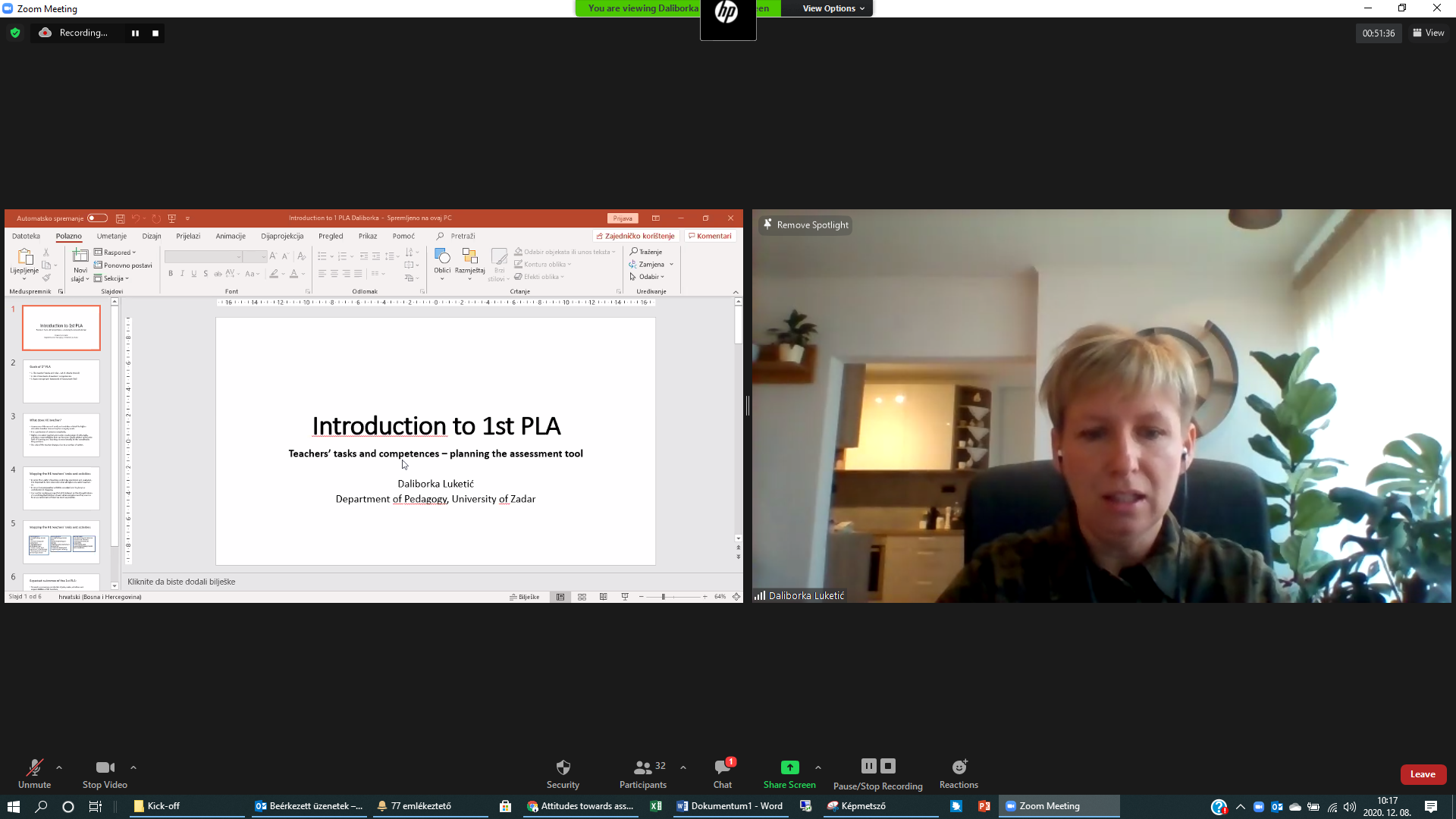2021-01-28 12:17:42
PROFFORMANCE PLA virtually
The PROFFORMANCE experts and partners worked virtually on the multi-aspect tool for assessing teachers' performance.
The PROFFORMANCE consortium aims to elaborate a joint criteria model for an assessment tool for teachers’ performance that may be customized to HEIs own needs at all EHEA countries. The aim of the planned assessment tool is to define benchmarks and a framework in order to help HEIs and teachers to find strengths to base on and weaknesses to tackle. It may foster exchange of knowledge and best practices, and encourage intra - and inter-institutional collaboration at national and international level.
The consortium decided to gather and work together at peer-learning-activity (PLA) events, as peer learning is a powerful way of sharing knowledge. It involves individuals exchanging knowledge and experience with each other, and diffusing this learning back to their country and organizations.
The consortium planned 3 PLAs, and as the project has been built on the experience and outputs on the EDUCA-T project of the Ministry of Science and Education of Croatia, the PLA1 activities have been coordinated by the Croatian partners and experts. Daliborka Luketic (University of Zadar) has taken the lead role for PLA1, and University of Zadar was supposed to be the host and provide the venue for the workshop.
Daliborka Luketic elaborated the background and the professional concept of the peer-learning, and the implementation has been planned together with Vilmos Vass and the Croatian and Hungarian partners.
Due to the world-wide spread of the 2nd wave of the pandemic, the consortium was forced to opt to the online organization of the PLA, which demanded reconsideration of the methodology. Instead of a 2-day-long physical meeting, it was decided to split the process into several smaller units.
In the first stage experts have been asked to participate in the creation of a common, asynchronous online mind map exercise, which aim was to create a common knowledge base and to involve and engage the experts, to make them interested, as well as to assess their commitment and prepare the professional activity. Based on the indicated interests and ambitions, 3 working groups were formed, with two leaders each, who could get acquainted with the tasks in the framework of a preliminary synchronic meeting.
This preparation not only decreased the workload of the Day1 of the PLA, but group leaders could get familiarised with the aims and expected outputs, and also experts could get to know a bit each other during the exercises.
This preparation has been a good start for the synchronic Day1 of PLA1 on the 8th December 2020, which results are reported here.


















